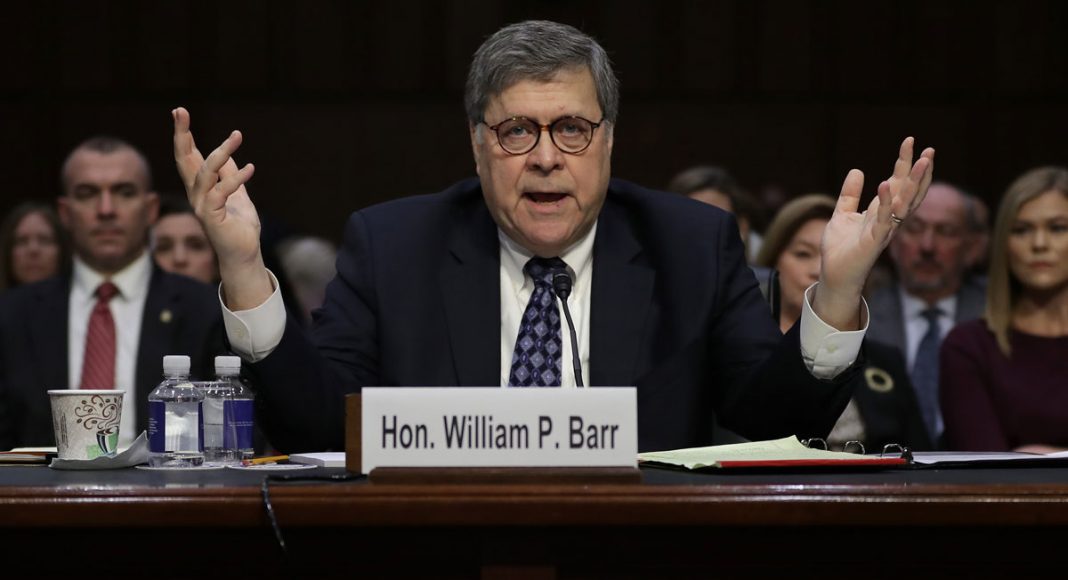During Senate confirmation hearings Tuesday, the cannabis industry waited to see if Donald Trump’s Attorney General appointee William Barr would follow his predecessor Jeff Sessions’ footsteps of prohibition-minded strategies or establish a new cannabis-related protocol in the Justice Department. Instead, Barr told lawmakers his “approach to this would be not to upset settled expectations and the reliant interests that have arisen as a result of the Cole memorandum.”
“I’m not going to go after companies that rely on the Cole Memorandum,” Barr added.
BARR on marijuana: “My approach would be not to upset settled expectations… investments have been made, so there has been reliance. However, I think current situation is untenable. It’s almost like a backdoor nullification of federal law”
Says he supports fed criminalization. pic.twitter.com/EsfATpxUpc
— Aaron Rupar (@atrupar) January 15, 2019
In response to further questioning from Sen. Cory Booker (D-NJ), Barr clarified he believed that Sessions had made a mistake in rescinding the Cole Memo, which discouraged federal prosecutors from going after law-abiding cannabis operations in legal states.
RELATED: How Will The Incoming Congress Shape Marijuana Legalization?
“As Attorney General, William Barr has signaled that he would essentially revive the Cole amendment and take a ‘hands-off’ approach to those states that have legalized marijuana for responsible adult and medical use,” Marijuana Policy Project executive director Steven Hawkins told The Fresh Toast in a statement. “This is a welcome reversal from the policies of Jeff Sessions and should mean less emphasis by federal prosecutors on low level marijuana offenses.”
HARRIS: You do not intend to use fed resources to enforce fed marijuana law in states that have legalized?
BARR: “That’s right. But I think i’s incumbent on the Congress to make a decision as to whether we are going to have a federal system.” pic.twitter.com/owWekY9PqP
— Aaron Rupar (@atrupar) January 15, 2019
However, Barr stated his belief in federal prohibition of marijuana despite this “hands-off” approach. He emphasized the need for Congress to fix the disparity between state and federal law. Currently two bills have been submitted in Congress that would address the issue — the STATES Act and the Marijuana Justice Act. Both would allow states to determine their laws without federal interference.
“State marijuana laws are successfully replacing criminal markets with responsible small businesses and it is long past time for Congress to enact legislation that respects those laws,” Aaron Smith, executive director of the National Cannabis Industry Association, said in a statement. “We will continue to work with lawmakers to make sure it is a priority during this session.”


